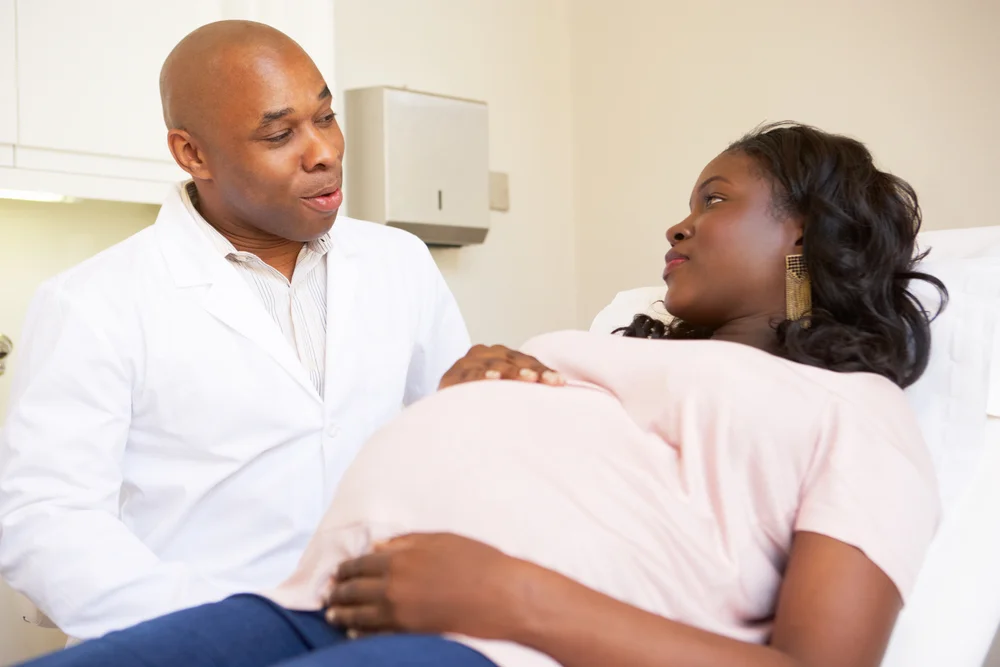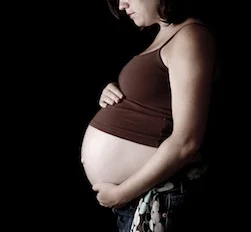Pushing for PPD Screening
One New York mom turned her personal struggle into a political mission
Six months after the birth of my first child, I told my primary care doctor that I was having severe anxiety and couldn't sleep. He knew I was a new mom who had weathered an extremely difficult pregnancy, and I was telling him that I could not sleep – essentially handing him several known risk factors for postpartum mood disorders. But rather than asking more questions or considering the possibility of postpartum depression (PPD) or anxiety, he told me, "Come back in a month if you are not better or can't function normally in your life."
And so I suffered for another three months before finally finding relief in the office of a reproductive psychiatrist.
My story is not remotely unusual. Up to 20 percent of new mothers experience postpartum mood disorders and, more often than not, they suffer without a diagnosis or treatment. But one New York mom took her all-too-familiar story and did something about it: Paige Bellenbaum got a New York senator to take up her fight to make sure that other moms don't have to struggle like she did. I asked Paige to share her story with Seleni and suggest ways for people to get involved with supporting maternal mental health screening.
Kate Rope: Why do you care so deeply that women be screened for postpartum depression?
Paige Bellenbaum: My son was born in 2006 after a very traumatic natural birth that lasted for over 20 hours without an epidural. By the time I had him in my arms, I was less than enthusiastic and, from the get-go, never got to experience that natural connection that I thought every mother got to have with their child.
At first, my experience was cloaked in anxiety. I was worried he was not sleeping enough, not eating enough. My husband went back to work a week after he was born, and I was on my own in our 400-square-foot apartment. Anxiety turned into a dark bout of depression. I stopped sleeping, lost my appetite, lost weight, and never went out. I sunk deeper and deeper. I would stare at all the prescription bottles in the medicine cabinet and fantasize about what combination would do away with me.
I am a clinical social worker, and I am well versed in mental health diagnoses and for whatever reason, I couldn't take care of myself. I called my midwife. I was in therapy. And nobody ever labeled it, and nobody had a solution when I thought it was pretty clear that I was unraveling.
KR: How did you finally get help?
PB: I found out about the Payne Whitney Women's Program at Weill Cornell Medical College in Manhattan. That is the place that saved my life. I took a cab up there and saw a psychiatry student who, within five minutes, said "You have severe postpartum depression, and you need to be on medication." I got better, and I got past it, and I went on to have a second child and was very lucky that I did not experience anything like that with my daughter.
KR: Why do you think it's so hard for moms to get support for PPD?
PB: When I was going through it, I would sit in the park next to other new moms who were saying things to me like, "Don't you love [motherhood]?" And I would say, "No, I hate it." And then they would say, "Oh I'm so glad you said that." I found it really hard that no one wanted to talk about the hard things about being a parent.
KR: So what are you doing about it?
PB: There are only a handful of states that require mandatory screening for postpartum depression by a pediatrician or an OB/GYN. So I looked for a New York state politician who would be willing to introduce a bill to mandate postpartum screening in New York, and I reached out to Liz Krueger who had just passed the Breastfeeding Bill of Rights. She signed on immediately.
We spent four years hosting multiple roundtables with pediatricians, the OB/GYN community. We reached out to just about every entity across the state that touches postpartum issues, and we came up with legislation to amend the public health law and the insurance law to increase the provision of maternal depression education, and provide guidelines for screening and referral for treatment.
It passed the house unanimously, and, then, at the end of last year, Governor Andrew Cuomo vetoed it. We were convinced up until the 11th hour that he was going to sign it, and when he didn't that was a real blow. But we decided to work harder and we reintroduced it.
KR: What does the new legislation do?
The Maternal Depression Bill provides maternal depression screening guidelines to the health care practitioners most likely to encounter women in the first year after giving birth – especially OB/GYNs, midwives, and pediatricians.
It also mandates that the Department of Health provide a list of referral options online to help patients and their providers get appropriate follow-up medical care and community support. Proper treatment for maternal depression has an 80 to 90 percent success rate, and the earlier treatment is started, the better the prognosis.
KR: What can people who care about this legislation do to help it become law?
PB: First we need support from both houses in the New York State legislature, so people should reach out to their state senator and state assembly member and ask them to vote in favor of the bill.
Then, in a few weeks, we will be circulating an online petition to urge the governor to sign the bill into law. So people should sign the petition, and then write or call the Governor's office and urge him to sign the bill into law.
KR: What would you like the community to know about PPD?
PB: The one thing I keep saying to women and their families is that PPD is not just something that a woman herself can identify and fix. It is critical that the families and the supporters of women going through this be involved. If I hadn't dragged myself to Weill Cornell that day, I don't want to think about what would have happened. Women need their families and friends to be there as a safety net, to hold their hand, to throw them a life preserver and say, "This is happening to you, but it will pass. Let's get you what you need to get better."
If you live in the New York City area, you can come learn more about maternal depression, resources in your community, and how to join Paige in helping to pass the Maternal Depression Bill at "A Community Forum: Shining a Light on Postpartum Depression: The Role of Programs, Policy and Public Health" on May 29th from 7 to 9 pm at Congregation Beth Elohim on 271 Garfield Place in Park Slope Brooklyn.












